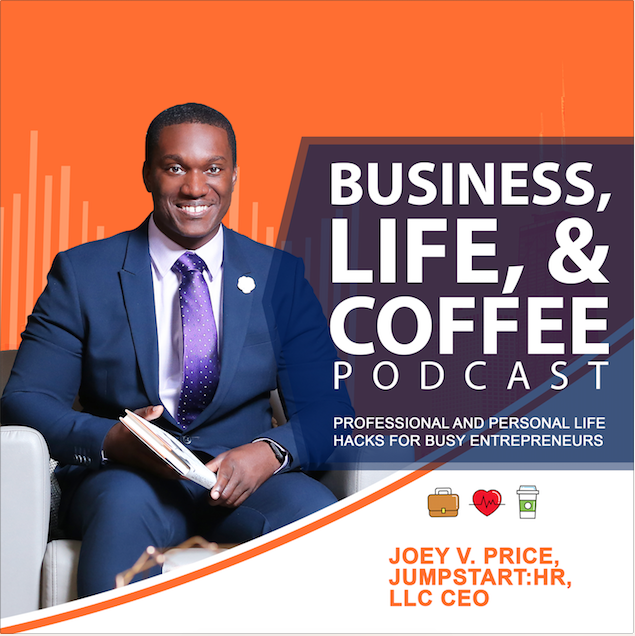This episode is powered by Jumpstart:HR, LLC - HR Outsourcing for Small Businesses and Startups
http://www.jumpstart-hr.com
Americans are giving to charity more than ever. In light of the most recent natural disasters and the holiday season approaching, there’s a new sense of urgency to charitable giving. But how many of us really know how our donations are being spent – and that they’ll make a difference?
Before making donations, donors should do their research to ensure they’re choosing wisely. Evaluators such as Charity Navigator offer charity ratings and in-depth analysis of U.S.-based charities, with criteria including financial management and accountability. Givers should also understand the cause they’re trying to support, and look for charities that effectively address the causes they’re passionate about.
I'm chatting with Thomas Tighe, CEO of Direct Relief – one of the nation’s highest rated and most reputable NGOs. He can share tips on charitable giving, explain red flags, suggest questions that people should ask when making a gift, and offer recommendations for charities.
Direct Relief Social Media:
https://www.facebook.com/DirectRelief/
https://twitter.com/DirectRelief
Get Social:
Joey Price //
IG - www.instagram.com/joeyvpriceHR
T - www.twitter.com/joeyvpriceHR
FB - www.facebook.com/joeyvprice
Listen:
iTunes - https://itunes.apple.com/us/podcast/business-life-coffee-entrepreneurship-life-hacks-personal/id1031048631?mt=2
Podbean - www.businesslifeandcoffee.podbean.com
SoundCloud - www.soundcloud.com/businesslifeandcoffee
Connect:
Twitter - www.twitter.com/bizlifecoffee
Instagram - www.instagram.com/businesslifeandcoffee
Facebook - www.facebook.com/businesslifeandcoffeee
Website - www.businesslifeandcoffee.com
About Thomas:
Thomas Tighe has served as President and CEO of Direct Relief, a nonprofit humanitarian medical organization, since October 2000. Direct Relief, established in Santa Barbara in 1948 and funded entirely with private support, provides medical material assistance to locally run health programs around the world and in the U.S. Since Tighe’s arrival, the organization has provided cash grants of more than $40 million and furnished more than $4 billion essential medicines, equipment, and supplies to support health services for low-income people in 88 developing countries and in all 50 U.S. states, where the organization conducts the country’s largest nonprofit charitable medicines program. During this tenure, Direct Relief has been named among the world’s most innovative nonprofits by Fast Company, has been rated by Forbes as being 99 percent efficient or better in fundraising since 2001, won the Peter F. Drucker Award for Nonprofit Innovation, the CECP Director’s Award, the Esri President’s Award for GIS innovation, the Office of the Surgeon General’s National Leadership and Partnership Award, and become the first U.S. nonprofit to obtain VAWD accreditation and a license to distribute Rx medications in all 50 U.S. states.
From 1995 to 2000, Tighe served as Chief of Staff and Chief Operating Officer of the Peace Corps, overseeing day-to-day operations of the agency’s worldwide programs and a resurgent growth of the agency to a 27-year high. From 1993 to 1995, Tighe served as Associate General Counsel of the Peace Corps, negotiating bilateral agreements to initiate Peace Corps programs in South Africa and China. From 1989 to 1993, he served as Associate Counsel on the U.S. Senate Committee on Veterans’ Affairs, conducting oversight and developing legislation related to veterans’ mental-health care, special disability programs, drug and alcohol treatment, and services for homeless veterans. Tighe also handled collateral duties related to foreign aid and the Peace Corps.
A 1982 graduate of the University of California, Berkeley, Tighe received a J.D. in 1985 from the University of California, Hastings College of Law and an Honorary Doctorate of Laws from Hobart and William Smith Colleges in May 2003. He served as a Peace Corps Volunteer teacher in rural Thailand from 1986 to 1988. He was selected for the Aspen Institute’s 2003 class of Henry Crown Fellows, is on the editorial advisory board for Pacific Standard Magazine, and is a member of the Pacific Council on International Policy. He was named Executive of the Year in 2006 by the South Coast Business and Technology Forum and is a visiting professor at the University of California, Santa Barbara’s graduate program in Global and International Studies.



 experience in software, hardware, and systems engineering, program management, business development and even teaching rocket science at the US Air Force Academy.
experience in software, hardware, and systems engineering, program management, business development and even teaching rocket science at the US Air Force Academy. 